"I'm good all day, but then I binge at night."

Many of you will resonate with a day like this. You have fantastic willpower all day long, sticking to a healthy low calorie meal plan. For breakfast, it's a green smoothie and a black coffee. For lunch, a grilled chicken salad with balsamic vinegar, hold the cheese and no side of bread. You're feeling great, you're feeling energetic, you're feeling so accomplished!
But then, you stumble into your kitchen after the day is done, and that's when everything spirals. All of a sudden, you get the irresistible urge to eat everything in sight. And try as you might to reel it in, you just can't stop ravaging your fridge and pantry until you are stuffed.
And after it's all done, you get an overwhelming sense of guilt and disgust. "How did I ruin all the good decisions I made earlier in the day in a matter of minutes at night?" Well, I hate to break it to you, but maybe those decisions earlier in the day weren't so "good" for you after all.

Evening binges are commonly misunderstood as lapses in willpower. But more often than not, they originate from too much restriction. Even someone with high willpower will eventually hit a breaking point at which their survival instinct takes over and they succumb to the pressure to eat.
If you struggle with binge eating, the first thing to understand is that binging is not a failure of willpower. It is simply a sign that something needs to be tweaked with your diet strategy.
Honoring your hunger cues
While they could work for some people, intermittent fasting and 1200 calorie diets are among my least favorite trends in nutrition. When you skip meals or restrict your intake to an extreme degree, you might initially feel fine. Maybe you're not naturally hungry in the morning, or maybe caffeine is helping to suppress your appetite. But hunger indicates a basic human need for sustenance that can't be ignored indefinitely.
Repeat after me: Restriction causes binging.
Ignoring or suppressing hunger cues during the day naturally lead to overeating or binging at night. Our bodies are smart; they know when they're being deprived of the energy they need. And when the deprivation goes too far, you can bet that they will respond however they can to get you to eat, eat, eat.
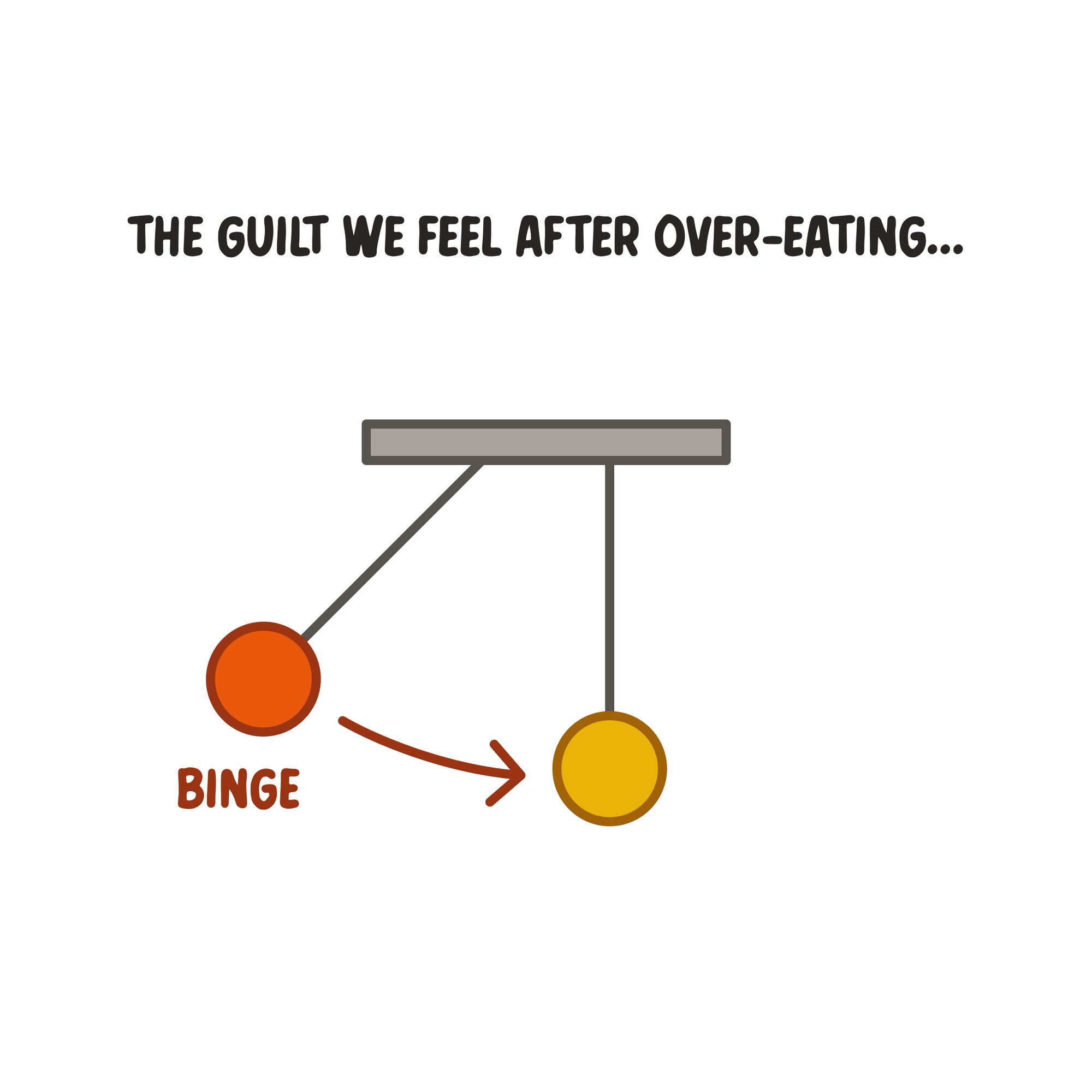
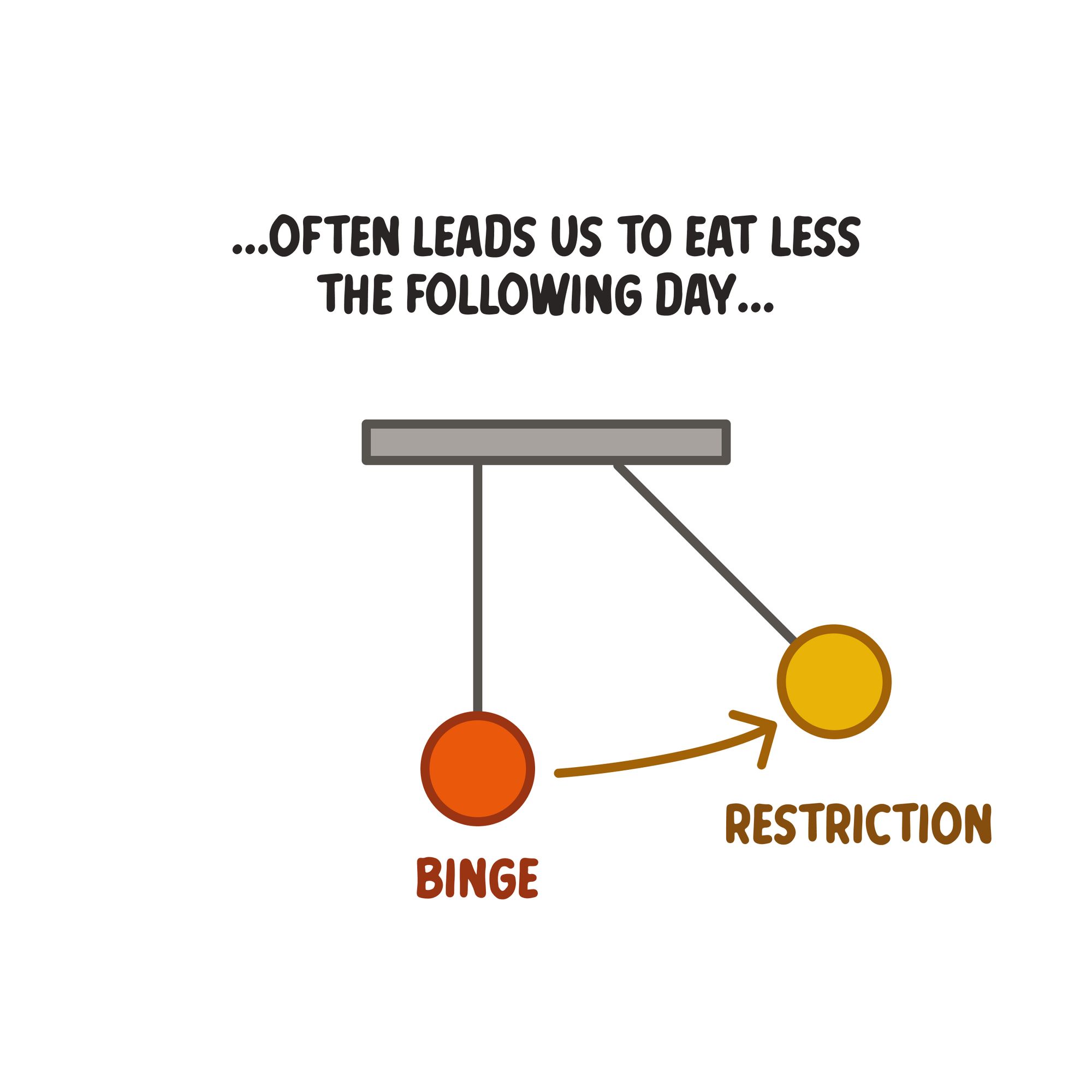
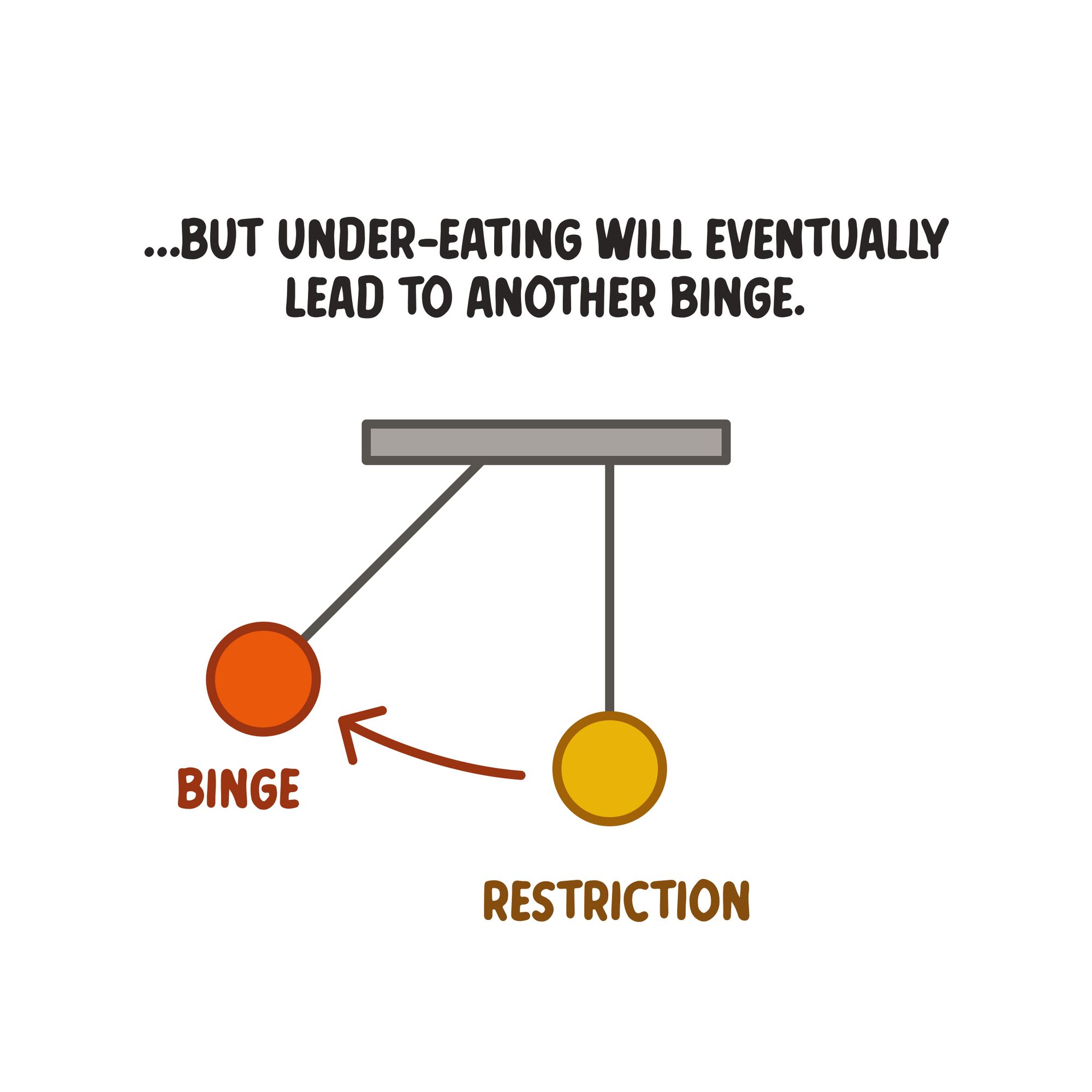
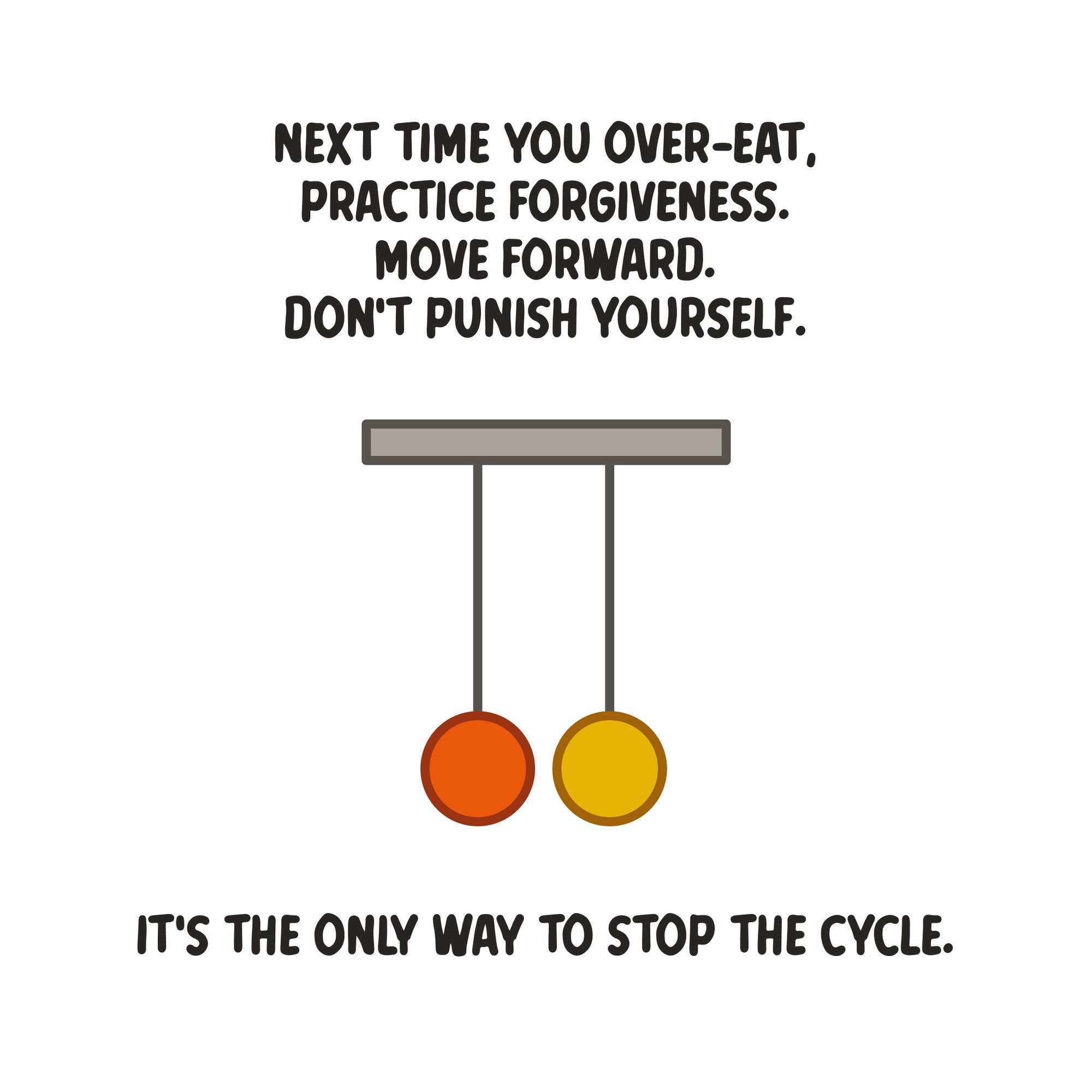
If you've ever had to care for children, you know that when we are young, we are naturally attuned to our hunger signals. But at some point, we became enmeshed in diet culture, we trained ourselves to ignore our physical signs of hunger, and we lost our way.
If you have a hard time telling hunger apart from cravings or eating at regular intervals throughout the day, you can improve your relationship with food by practicing mindful eating and tuning back into your body's natural cues. Learning to respond to hunger in an appropriate and timely manner will prevent the extreme hunger that causes uncontrolled binging at night.
A healthier and more effective way to diet

Does this mean that you should give up on dieting altogether? Not necessarily! If you're carrying excess body fat, losing weight may very well be the best way for you to live a long, healthy life and avoid chronic disease. Even though the hallmark of weight loss diets is caloric restriction, there are ways to approach it that are more reasonable and more sustainable.
Now you're probably thinking: "Wait, Michelle, didn't you just say that I should avoid hunger in order to stop binging? How am I supposed to be in a caloric deficit and avoid hunger and not binge?"
Well, here's the deal. Hunger will be a part of your life no matter what. You can't avoid it altogether. But you can manage it in accordance with your goals.
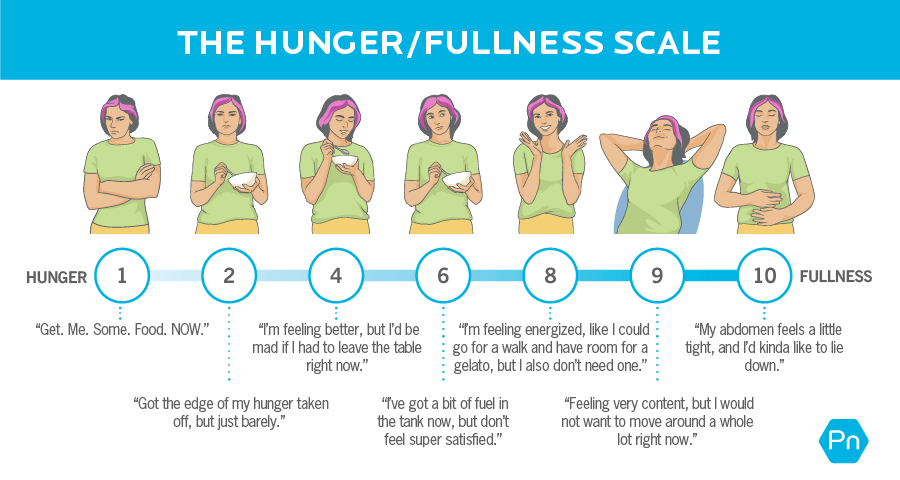
If you had to rate your hunger/fullness on a scale of 1 (most hungry) to 10 (least hungry), you'd probably want to stay somewhere between a 4 and 8 most of the time. If you're stuck in a binge-restrict cycle, you're likely overshooting on both ends, allowing yourself to become both extremely hungry (restriction), only to succumb to the reaction of becoming extremely full (binging). And let's be honest, both ends of the spectrum make you feel like crap.
Sustainable weight loss is about getting comfortable being at a 4, instead of pushing yourself to the absolute brink at a 1. It's about recognizing and appropriately responding to hunger, dialing it to a manageable level rather than letting it build to an overwhelming point. It's about fueling at regular intervals with satiating foods that curb the urge to overindulge. By avoiding the extremes, you can not only reach your weight loss goal, but also improve your body awareness, and maintain a healthy relationship with food for life.


